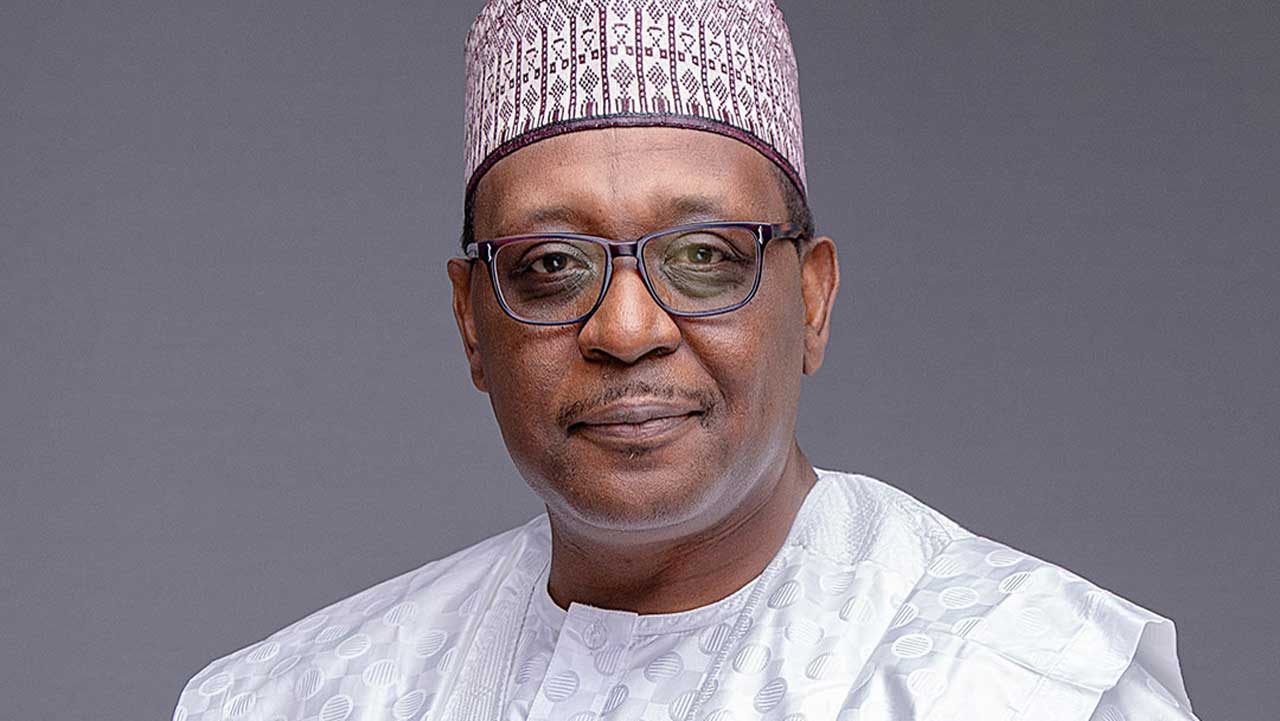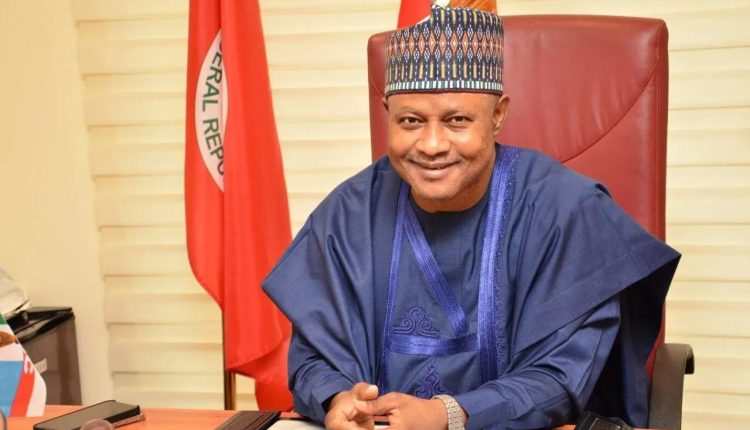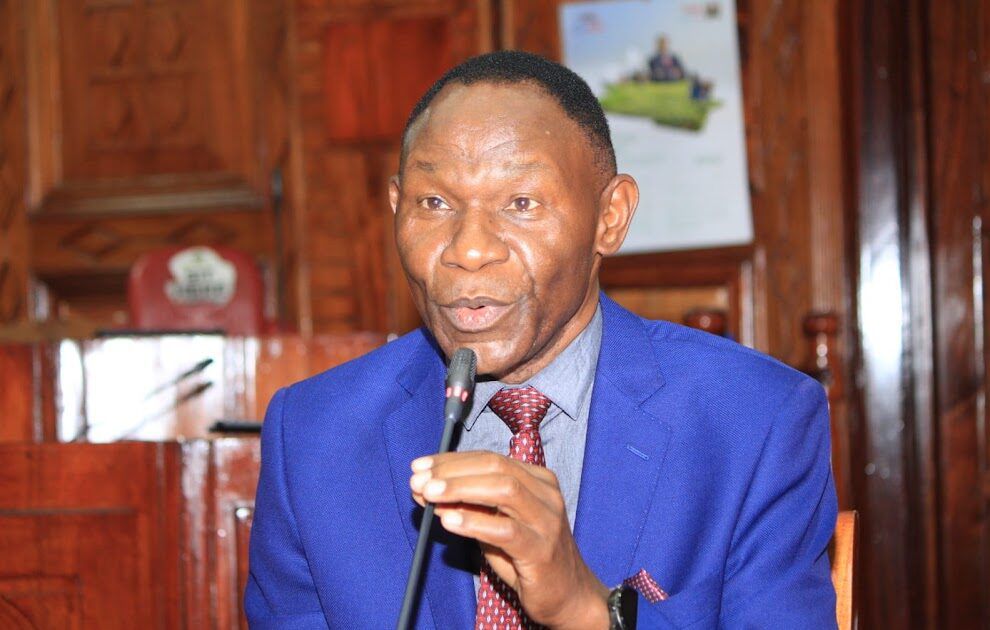Constituents of the House of Representatives Speaker, Tajudeen Abbas, have strongly criticised him for distributing exotic cars worth hundreds of millions of naira to traditional rulers across Kaduna State.
Abbas, who represents Zaria Federal Constituency, handed over 23 Changan X7 Plus vehicles during a brief ceremony held at Sir Kashim Ibrahim Government House, Kaduna, last Sunday.
The 2024 model Changan X7 Plus vehicles are estimated to cost between $10,000 and $14,500 (over N20 million each, depending on features such as transmission and seating capacity), bringing the total expenditure to approximately N460 million for all 23 vehicles.
However, Daily Trust could not immediately verify the specific configurations or whether the procurement costs aligned with current market prices.
It was also unclear if the initial four vehicles distributed in Zaria during the first phase were the same model, as only 19 were presented during Sunday’s event.
Speaking at the handover, Speaker Abbas described the gesture as part of a broader initiative in partnership with Governor Uba Sani to strengthen traditional institutions.
The speaker explained that the vehicles were procured through the Small and Medium Enterprises Development Agency of Nigeria (SMEDAN) as part of the fourth phase of a broader distribution initiative.
He said the latest batch of 23 vehicles follows an earlier phase carried out during Ramadan, during which vehicles were presented to emirs, district heads, and other senior traditional leaders within the Zaria Emirate Council.
However, many constituents argued that the vehicles were a misplaced priority, especially in light of widespread poverty and failing public infrastructure in the state.
They questioned the rationale behind spending public funds on vehicles for already affluent traditional rulers.
Barrister Mohammed Ibrahim, a Zaria resident, decried the move, saying: “Looking at the source of the funds, which reportedly came from SMEDAN, were they meant for small-scale industries or something else? SMEDAN is supposed to help revive cottage industries, not buy luxury cars. This is not a priority at all.
“The focus should be on essential services like hospitals and schools. This is clearly a case of misplaced priorities. Instead of making any real impact, this move alienates the people.
“For instance, the state could have been divided into three senatorial zones, and general hospitals in each zone equipped with life-saving equipment like MRI scanners, cancer detectors, and dialysis machines. Or, the funds could have been used to renovate secondary science schools. That would’ve been far more beneficial.”
Ustaz Aliyu Suleiman, another Zaria resident, acknowledged Abbas’s contributions but disagreed with the car donations.
“The speaker has done well for us, but I don’t support this move. There are better ways to support the people. Many see this as a political calculation, not a genuine gesture,” he said.
Ibrahim Abubakar, also from Zaria, questioned the relevance of the beneficiaries.
“Some of the emirs who got these cars can afford them. Instead, the money should have been spent addressing the water shortages plaguing communities in Zaria City.
“Our leaders should focus more on the vulnerable and introduce meaningful palliatives, not just support for the elite,” he said.
Another constituent, Musa Abubakar from the Gargwaji area, urged Abbas to prioritise infrastructure over symbolic gifts.
He said, “The speaker is sharing rice with constituents, which is okay, but he wasn’t elected for that. We need job creation. There are many graduates here with no work.
“I appreciate his efforts to continue a road and bridge project abandoned by the state government, but we need more of that, not handouts to a privileged few.
“When you give someone rice, it lasts a few weeks. But roads and jobs? Those bring long-term benefits.”
Sanusi, who resides in Kuregu on Zaria’s outskirts, said the poor deserve more attention than the elite.
“Many families can’t eat three meals a day. These are the people who need help; not the already comfortable,” he said.
Car gifts misplaced priority – Analysts
Dr Ismail Mohammed Anchau, Director of the Policy and Transparency Division at Kaduna Polytechnic, said while traditional rulers are important, the timing and economic context make such gifts inappropriate.
“Prioritising traditional rulers under current conditions is not ideal. Poverty is widespread and contributes to insecurity. Addressing that should come first,” he said.
Dr Anchau emphasised the role of SMEDAN in promoting small and medium enterprises (SMEs), which employ 63% of Nigerians.
“SMEDAN’s core function is SME development. If it facilitated this car distribution, it raises questions about its mission and the legality of its involvement.
“Unemployment in northern Nigeria is massive. We need grassroots-oriented policies, especially in agriculture, to absorb large numbers of unemployed youth. This initiative does not achieve that,” he said.
He also warned that such distributions could be seen as early political maneuvering ahead of the 2027 elections.
“There’s a growing perception that this is tied to political calculations for 2027. Once something is given in politics, something is usually expected in return. Projects like this, along with the recent talk of renovating palaces, only fuel those speculations,” he added.
Abubakar Ahmed, a public affairs analyst, said the involvement of SMEDAN, through the zonal intervention fund, raises procedural concerns.
He said, “The rationale behind certain constituency projects is deeply flawed. The chieftaincy institution is a state affair. It makes no sense for a federal agency to be used to fund state-level institutions.
“This is a misuse of intervention funds. If the speaker truly wanted to help his people, there are more meaningful ways—ways that address real needs.
“Distributing luxury cars to already privileged leaders doesn’t solve any pressing problem. It’s another example of misplaced priorities.”
Speaker defends move
Abbas defended the vehicle distribution to traditional rulers, stating that the cars were not merely for ceremonial use.
“They are essential tools to help our traditional rulers reach all parts of their chiefdoms and emirates. This is critical for maintaining peace and ensuring security throughout Kaduna State,” he said.
He explained that the initiative began a few weeks ago, with the approval of the state governor, when four vehicles were distributed to the Zazzau Emirate as part of the first phase.
“Today (Sunday), we are proud to present an additional 19 vehicles, bringing the total to 23 under this phase. These vehicles were facilitated through SMEDAN, one of our most vibrant federal agencies,” Abbas said.
He described the gesture as a reaffirmation of their shared commitment to empowering traditional institutions to play meaningful roles in governance, community engagement, and peacebuilding.
Abbas also hinted at plans to include all 1st, 2nd, and 3rd class chiefs in subsequent phases of the distribution.
The speaker revealed that the project has been captured in the 2025 federal budget, with provisions for expanding the vehicle distribution and initiating palace renovations across all three senatorial districts of Kaduna State.
‘Vehicles will motivate our traditional leaders’
Speaking at the vehicle distribution, Governor Uba Sani said the luxury cars would serve as motivation for traditional leaders, acknowledging their pivotal role in intelligence gathering and non-kinetic approaches to addressing insecurity.
The governor stressed the importance of synergy between traditional institutions, religious leaders, and security agencies in sustaining peace.
He also commended Speaker Abbas for his dedication and for ensuring the vehicle distribution covered all local government areas in the state.
Abbas’ previous empowerment programmes
Just last month, Speaker Abbas launched a major empowerment initiative for his constituents in Zaria and Zone 1 of Kaduna State.
The event, held at Kofar Doka in Zaria, featured the distribution of hundreds of vehicles, tricycles, and motorcycles.
According to a statement by his Special Adviser on Media and Publicity, Musa Krishi, the items distributed included: 20 Hilux vehicles, 2 ambulances, 20 18-seater buses, 50 Sharon vans, 25 cars (Golf, Corolla & Peugeot 406), 200 tricycles (Keke NAPEP), and 1,000 motorcycles.
Beneficiaries included religious groups, women’s organisations, security agencies, local party officials, and workers in the health and education sectors.







